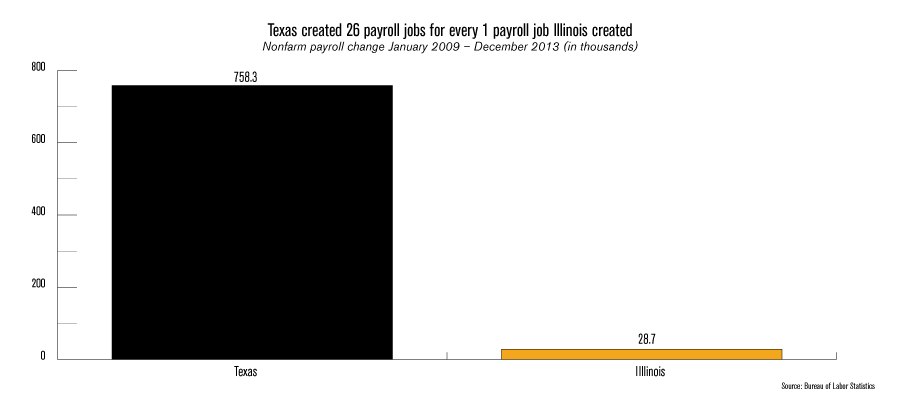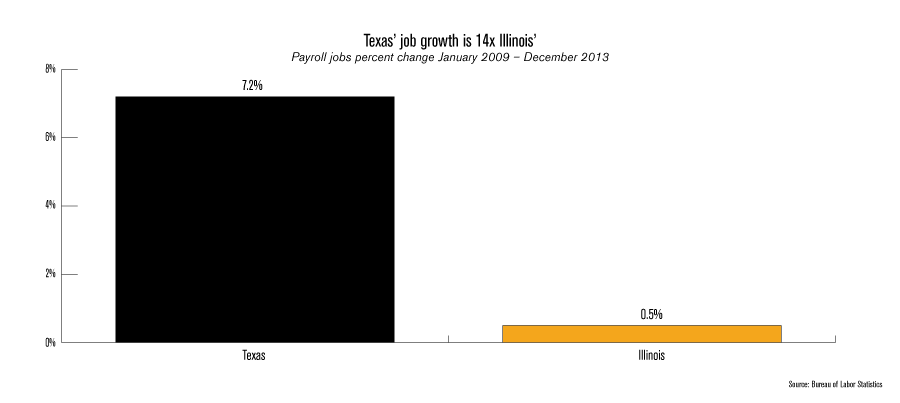Illinois vs. Texas – the scorecard
CNN’s Crossfire hosted a Texas vs. Illinois debate on Friday. The debate ranged from health care and fracking to the minimum wage and job creation. A new ad was unveiled that will roll out in Illinois to entice businesses and workers to move down to Texas. This would be nothing new, as Illinoisans have been...
CNN’s Crossfire hosted a Texas vs. Illinois debate on Friday. The debate ranged from health care and fracking to the minimum wage and job creation.
A new ad was unveiled that will roll out in Illinois to entice businesses and workers to move down to Texas. This would be nothing new, as Illinoisans have been migrating to Texas for decades. The ad promises fiscal responsibility and a favorable business environment, concepts that Illinoisans have heard about in theory but haven’t seen in practice for decades.
For Texas and Illinois, the scorecard on jobs and growth is crystal clear. Here are the comparisons, starting in January 2009:
- In the past five years, Texas has increased the number of people employed in their state by more than 1 million. Illinois has lost employment in the same period.

- Texas has also trumped Illinois on payroll job creation.

- It’s not just because Texas is a bigger state. Texas’ payrolls grew at 14 times the rate of Illinois’ payrolls

As so often happens when an economic debate is lost, some Illinoisans point to their higher minimum wage as evidence of economic superiority, and say that Texas ought to lift its minimum wage to help the poor.
However, not only does Texas now provide a better median income than Illinois, but entry-level jobs are also plentiful in the Lone Star State, leading to lower youth unemployment rates:
- In 2013, unemployment for people age 16-19 was 28.3 percent in Illinois, versus 21.5 percent in Texas.
- In 2013, unemployment for people age 20-24- was 15.8 percent in Illinois, versus 10.7 percent in Texas.
CNN’s Crossfire is billed as a debate show. But on Friday, they didn’t host a debate. They hosted an exhibit of the policies of an effectively run state economy vs. the policies of a failed state economy.
